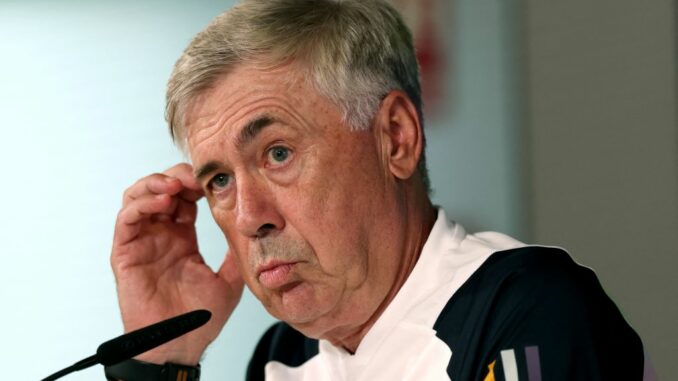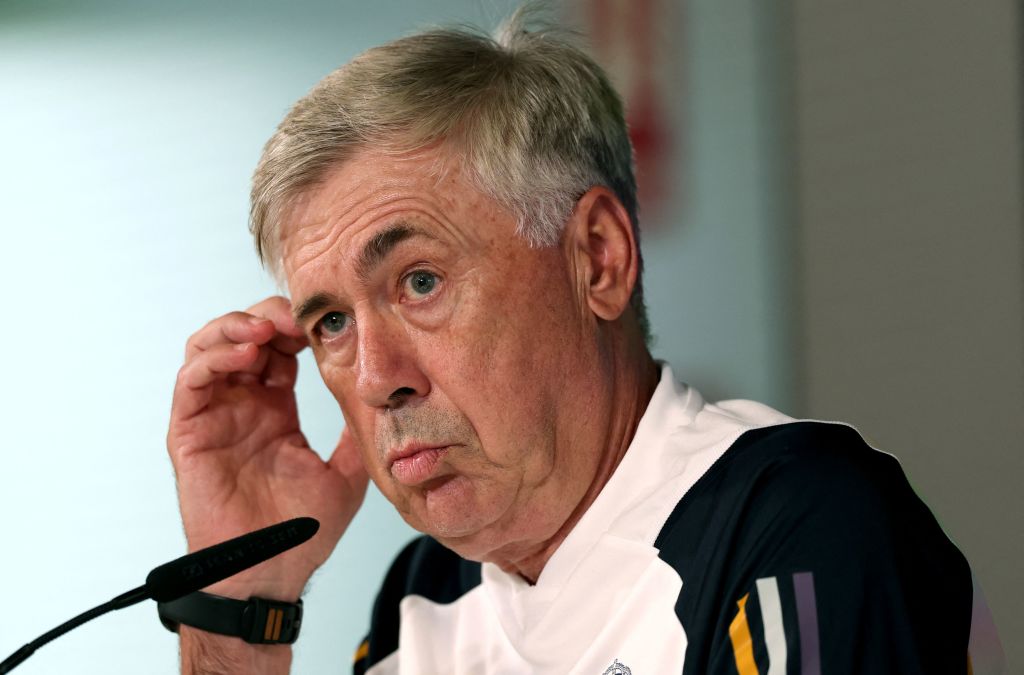

Real Madrid’s head coach, Carlo Ancelotti, recently made headlines when he chose to leave out key players like Luka Modric and Jude Bellingham from the starting lineup in a match against Las Palmas. Ancelotti’s decision, however, was rooted in a thoughtful approach to player management and rotation, as he explained, “I didn’t talk to Luka about that. The players understand when they have to rest and rotate.”
In modern football, the demands on players are greater than ever before. The packed fixture schedules and intense competition require managers to carefully manage their squads to avoid burnout and injuries. Ancelotti’s decision to rest Modric and Bellingham is a testament to his commitment to ensuring the long-term performance and well-being of his players.
Luka Modric, the Croatian midfield maestro, is a vital cog in Real Madrid’s midfield engine. His vision, passing range, and ability to control the tempo of the game are second to none. Yet, even a player of Modric’s caliber is not immune to the physical toll of continuous match participation. Ancelotti’s decision to bench Modric for a game is a strategic move aimed at preserving his energy and ensuring he remains at the top of his game when the team needs him most.
Ancelotti’s approach to player management is not limited to his star players alone. Jude Bellingham, a young and highly promising talent, also found himself on the bench for the Las Palmas game. This decision sends a clear message that Ancelotti’s rotation policy extends to players of all ages and experience levels.
The Italian tactician, who boasts a rich managerial career, understands the value of squad depth and the importance of keeping players fresh throughout the season. His words, “I try to manage the players as best as possible,” reveal his dedication to optimizing the performance of his entire squad, not just the starting eleven.
The concept of player rotation has become increasingly prevalent in modern football. Managers like Ancelotti recognize that no player can perform at their peak in every single game. Rotation not only minimizes the risk of injuries but also allows younger talents to gain valuable experience while keeping seasoned veterans ready for pivotal encounters.
Additionally, Ancelotti’s decision to rest Modric and Bellingham exemplifies the trust he places in his players to understand and accept the rotation policy. Footballers today are well aware of the physical demands of the sport, and they understand the importance of managing their workload to maintain peak performance over the course of a long season.
Moreover, Ancelotti’s approach fosters a sense of unity and camaraderie within the squad. Players who are not in the starting lineup on a given day still feel valued and part of the team’s mission. This can contribute positively to team morale and cohesion, which are essential elements of success in football.
In conclusion, Carlo Ancelotti’s decision to rest key players like Luka Modric and Jude Bellingham against Las Palmas reflects his thoughtful and strategic approach to player management. It underscores the importance of rotation in modern football and highlights Ancelotti’s commitment to keeping his squad fresh and competitive throughout the season. Ultimately, his trust in the players to understand and accept these decisions not only benefits the team’s performance but also fosters a positive atmosphere within the squad. Ancelotti’s philosophy serves as a blueprint for successful player management in the ever-evolving world of football.
Leave a Reply